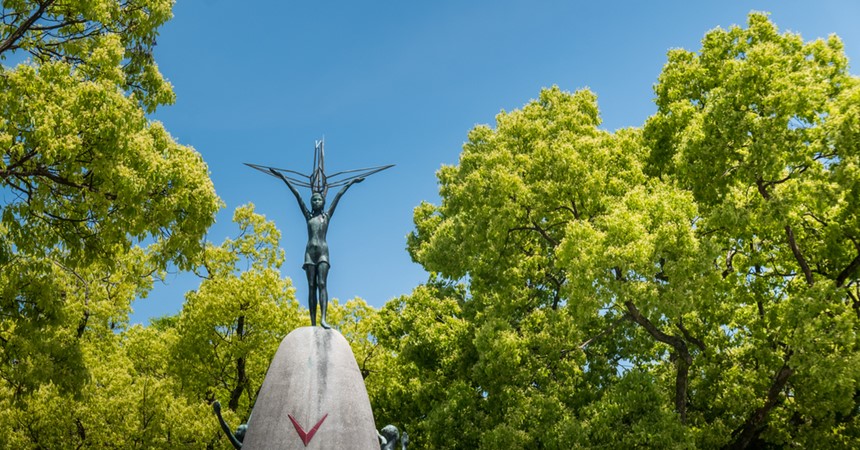As I sit at my desk on this Sunday 6 August, the Feast of the Transfiguration of Our Lord, I am conscious of the following events that have occurred on this day, and which have involved our diocesan community:
- Hiroshima Day – the community gathers to remember and to pray for peace.
- World Youth Day Pilgrimage in Lisbon, Portugal – 45 pilgrims have been to the Holy Land and are now in Portugal.
- Local World Youth Day Pilgrimage around Maitland – 11 pilgrims have journeyed with each other.
- aMeM caMiNo in our diocese – about 10 people will walk 100km across our diocese over five days.
Each of these events/encounters involves staff from the Pastoral Ministries Office as well as parishioners from across the diocesan community. On this very day, over seventy people are exploring their faith with each other as pilgrims, taking time to search for meaning and purpose to their lives.
I feel privileged to accompany those who accompany others as seekers of the way. It’s a bit like the apostles, Peter, James, and John who were led up a high mountain to be alone with Jesus. Who knows what can happen on high mountains or as we stay on mountain top experiences. It is through these mountain-top experiences that the light may be revealed. When this occurs, we may hear the voice of Jesus saying, “Stand up, do not be afraid,” while being touched by him. Do we dare to listen to that call of being his followers, of being his disciples!
Last weekend on our long drive to and from the Gold Coast, the sides of the road were resplendent with new wattle blooms. These bushes for most of the year go unnoticed with their evergreen foliage, but as we move toward spring the golden wattle reminds us of the beginning of the new life of spring. I do love our Australian landscape with its fauna and flora. God is all around us if we but have eyes to see, ears to listen and a heart to feel. This gold bursting through the green, provides me with an image of the transfiguration. The blooms are there but not always obvious.
Can you hear the voice of God saying, “This is my beloved”?
However, I am unable to let Hiroshima Day go without some words around nonviolence. During the past week, the daily reflections by Fr Richard Rohr from the Centre for Action and Contemplation, have been on nonviolence. The path to nonviolence begins within ourselves and then radiates from us to the community around us.
From Wednesday’s reflection these words resonated with me:
While violence may be effective in temporarily keeping us safe from harm, it can never create relationships. Violence can never heal the harm that has been done. Violence can never bring about reconciliation. Violence can never create Beloved Community. Only love can do that. (Kazu Haga)
At the end of each week, the Centre for Action and Contemplation provides us with a practical guide, and I want to share this practice with you for Week Thirty-One. It is called the Four A’s:
Nonviolence trainers Veronica Pelicaric (1946–2022) and Nina Koevoets offer what they call “the four A’s” as guidelines to help us become more aware of our feelings and emotions, so we are better able to respond compassionately rather than react violently:
Acknowledge: When you notice a feeling, acknowledge its presence. First simply name it. If you are not alone, it can also be good to verbalize what you are feeling so the other person knows what is going on with you. “I am feeling irritated right now,” is an example of acknowledging a feeling.
Allow both your feeling(s) and thoughts. If violent images or words come to your mind, you can observe them. Take a deep breath and realize that this is not what you really want to act out. Breathe out and release.… If scary images or thoughts come to your mind, do the same. Take a deep breath and ask yourself if your thoughts are realistic…. Do a reality check. Breathe out and release. Tell yourself you can deal with it.
Ask yourself what is the reason for your feeling. Where does it come from? What need or value do you hold that was not met? For example, did you need care, appreciation, or understanding? What would you like to hear in this situation? Investigate with curiosity and care. Try to have a compassionate dialogue with yourself.
Accept that you are not perfect and forgive yourself. Offer reassurance with a sentence such as “I am patient,” or, “I’m able to handle this.” If it helps, you can also bring to mind a loving being, family member, friend, or pet. Alternatively, focus on your body to release any tension through your breath or by relaxing your muscles and letting your thoughts go.
On this day when we recall the violence of the Second World War, of the bombing of Hiroshima (6 August) and Nagasaki (9 August), killing over 350,000 people, and the ongoing violence of our world, I hope the Four A’s above provide you with some tools to keep the world around you peace-filled, because that is where peace begins.
Please keep looking out for opportunities provided for your growth in faith and in life. Father Richard Lennan will be with us next week, and I hope to see you at one of his workshops.
Happy Saint Mary of the Cross (Mary MacKillop), day.
Follow mnnews.today on Facebook.

